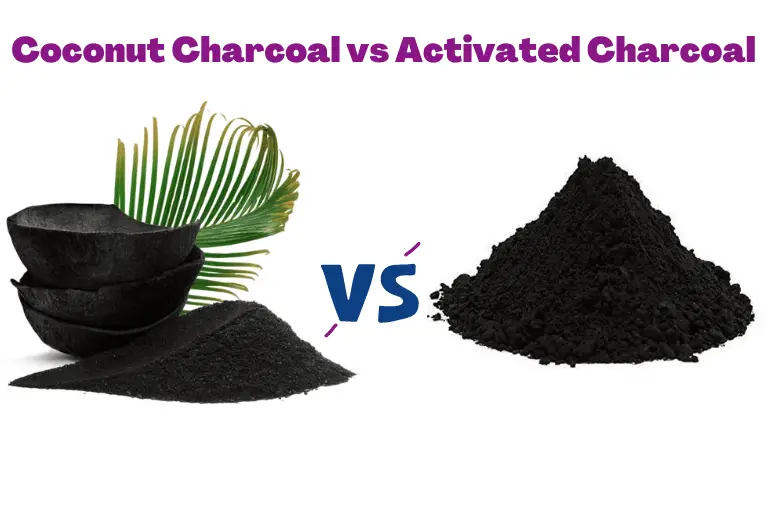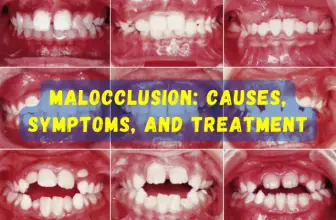Coconut Charcoal vs Activated Charcoal: Know The Difference

The question: why choose coconut charcoal powder over activated charcoal gets a very decisive answer and comparison. If you are wondering between Activated Charcoal Vs. Coconut Charcoal – learn what is better for your health and which one to choose.
What’s the difference between activated charcoal and coconut charcoal?
Coconut charcoal and activated charcoal are two types of charcoal. They both absorb toxins and purify the body by removing impurities. However, there are some differences between coconut charcoal and activated charcoal:
- Coconut charcoal is made from coconut shells, while activated charcoal is made from wood. However, activated coconut charcoal is made from coconut.
- Coconut charcoal is made by burning coconut shells in a high-temperature fire. The resulting ashes are then ground into a fine powder. Then it is mixed with water. This paste is then heated to create coconut charcoal. Its main function is as an insecticide, as it kills insects on contact (though it doesn’t work on termites).
On the other hand, activated charcoal is made by heating wood with a chemical process that makes it super-absorbent. This means that it can help you absorb the toxins in your system, which is especially helpful if you’re trying to treat poisoning or poisoning symptoms. It’s also important because it acts as an antibacterial agent, which can help prevent infections and other illnesses.
- Coconut charcoal can be used to make soap and other personal care products, whereas activated charcoal can only be used in industrial applications such as water filtration systems or gas mask filters.
- Coconut charcoal has a lower ash content than activated charcoal, which makes it easier to use for making facial masks and scrubs because it does not leave any residue behind after use, as does activated charcoal (which leaves a greyish-white residue).
Coconut charcoal vs activated charcoal: Which one is better for whitening teeth?
Coconut charcoal and activated charcoal are both natural ingredients that can be used to whiten teeth. But which one is better?
When it comes to whitening your teeth, coconut charcoal is generally considered to be the best option. The reason for this is that it doesn’t contain any harmful chemicals but instead uses a natural source of activated carbon that has been treated with heat and steam to remove impurities from within the carbon itself.
Activated charcoal is another option you may consider, especially if you want a more affordable alternative to coconut charcoal. It’s made from wood shavings or coconut shells and can be soaked in water prior to use as toothpaste. However, it does contain chemicals such as sodium silicate, which could potentially cause damage to your mouth if you swallow too much of them too quickly when brushing your teeth with this product.
So which one should you choose? In our opinion, both are great choices for whitening your teeth!
FAQs
-
What is activated coconut charcoal?
Activated coconut charcoal is made by steaming coconut husks in an oven and then drying them before they are pulverized into a powder. This process activates the coconut husk so that it can be used as a base for many different types of personal care products.
The activated coconut charcoal powder is not only used to make personal care products but it’s also used as an anti-inflammatory agent for people with conditions like arthritis and inflammatory bowel disease (IBD). It’s also been found to help diabetics manage their blood sugar levels better by balancing the levels of glucose and insulin in their system.
-
Is activated coconut charcoal safe?
We have heard a lot of questions about whether or not activated coconut charcoal is safe. We want to clear up any confusion so that you can make an informed decision about whether or not to use activated coconut charcoal in your beauty care routine.
Activated Coconut Charcoal is not harmful when used in your hair care products, but you do need to be careful when applying it to the skin. This is because it can cause irritation if used on sensitive areas like the face, neck, chest, etc. It can also be irritating if used in contact with the eyes or genitals. It’s best to use activated coconut charcoal before going out into the sun, as well as before you apply makeup around your eyes or lips.
-
Is activated charcoal and charcoal the same?
Yes, they are the same, but the manufacturing process is different.
Activated charcoal is made by heating wood chips to a high temperature and then passing air through the ashes. This produces a carbon-rich material that has been activated by heat and pressure. The activated charcoal can then be used for filtering or absorbing chemicals.
Charcoal is made from wood and other plant matter that has been burned, charring the material and leaving behind carbon in its place. In contrast, activated charcoal is produced by heating wood chips under high temperatures until they’re baked into a fine powder.
-
Can I use normal charcoal instead of activated charcoal?
When you’re trying to get rid of a problem like stinky feet, it can be tempting to try anything—even if it’s not specifically recommended by your doctor. But there are a few things that can be dangerous when you use normal charcoal instead of activated charcoal.
Activated charcoal is the best way to get rid of toxins in your body, but if you try to use regular charcoal instead, you could have problems with your stomach (especially if you take antacids or aspirin) or with your lungs and heart (if you smoke). If you do have any of these conditions, please talk to your doctor before trying anything else!
Plus, if you do use regular charcoal instead of activated charcoal, there’s also the chance that you’ll end up inhaling some of the fumes from the regular charcoal. That’s not good for your lungs.
-
Can I use activated charcoal to remove odors?
Activated charcoal does not absorb odors—it just absorbs the toxins themselves. So if you’re using activated charcoal on a surface that smells strongly of something else (like garlic or onions), you’ll end up with a funky smell on the surface of your home instead of an odorless space!
Resources:
- https://www.healthline.com/nutrition/activated-charcoal
- https://www.webmd.com/vitamins/ai/ingredientmono-269/activated-charcoal
- https://www.keiken-engineering.com/news/what-are-the-advantages-of-using-activated-carbon-made-from-coconut-shell
Related Reading:






